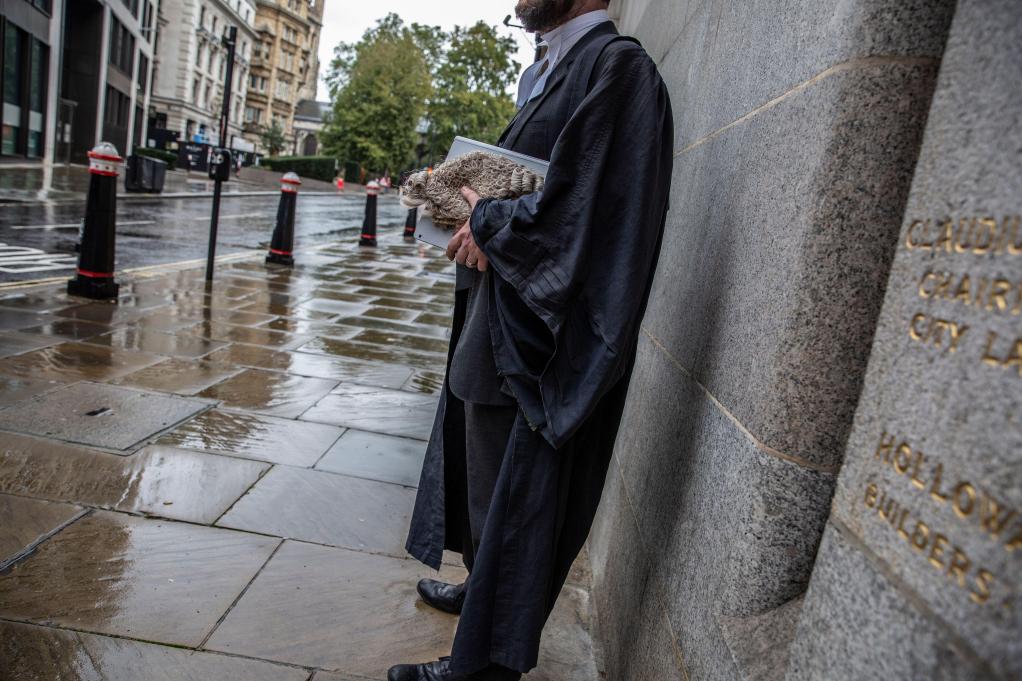UK: Barristers to strike over legal aid rates
Barristers are in dispute with the Ministry of Justice over legal aid rates in criminal cases, which they say are so low that many junior lawyers can earn less than the minimum wage when their expenses are taken into account.

Criminal trials across England and Wales will grind to a halt next week after barristers overwhelmingly backed strike action over pay.
Lawyers are set to form picket lines at the Old Bailey and at five other large courts around the country from June 27.
They will strike on Monday and Tuesday that week and then for three days in each of the following three weeks.
More than 80 per cent of lawyers balloted by the Criminal Bar Association backed an escalation to a continuing work to rule that has been running for about two months.
In addition to demonstrations at the Old Bailey, the country’s foremost criminal court in London, pickets are also set for crown courts in Manchester, Birmingham, Leeds, Bristol, and Cardiff.
Barristers are in dispute with the Ministry of Justice over legal aid rates in criminal cases, which they say are so low that many junior lawyers can earn less than the minimum wage when their expenses are taken into account.
The four-week strike programme will involve 2,500 defence barristers, who will refuse to enter court on those days. While prosecution barristers will continue to work, judges will be forced to adjourn and delay many trials.
The strike will add to an already entrenched backlog of cases at the crown courts, which hovers between 58,000 and 60,000. The figure has almost doubled as a result primarily of the coronavirus pandemic lockdowns.
Ministers are consulting on a £135 million injection into the criminal justice system, which was proposed after Lord Bellamy QC made recommendations to the government as part of an independent report.
Bellamy, who was appointed as the government’s justice minister in the Lords earlier this month, recommended a minimum 15 per cent pay rise for criminal law specialist barristers.
However, the association has claimed that only part of the proposed £135 million will go to them as the cash wil also be spread to solicitors and other areas of the criminal justice system.
Barristers’ leaders have called for a minimum 25 per cent pay increase for their members. Jo Sidhu QC, the association’s chairman, said that “throughout the past year, we have continued to engage regularly with the Ministry of Justice.
“We have made repeated efforts to persuade government to at least honour the basic recommendations of the [report] . . . without delay rather than force us to wait until October, and then only to attach any increase to new representation orders thereafter so that we see no benefit to our incomes until late 2023 and beyond”.
According to the association, criminal law barristers have suffered an average decrease in real earnings of 28 per cent since 2006.
It is claimed that during one year of the pandemic, average earnings from legal aid collapsed by 23 per cent, while the association said that the ministry saved £240 million in unspent fees.
Sidhu added that 83 per cent of the association’s members “were forced into personal debt or to use up our savings with no government support to mitigate that massive loss of income”.
Figures from the association purport to show that barristers in their first three years of practice earn a median income of only £12,200,“which is below minimum wage”. The national minimum wage for people aged 23 and above is £9.50 per hour.
The association said that as a result of poor pay, 25 per cent of barristers have given up criminal law work over the last five years, with 300 leaving over the last year.
“The alarming attrition of criminal advocates resulted in 567 trials last year being postponed for want of an available prosecution or defence barrister,” said Sidhu.
James Cartlidge, a justice minister, described the strike as “disappointing”. He argued the 15 per cent pay increase “would mean a typical criminal barrister earning around £7,000 extra per year and only last week I confirmed we are moving as quickly as possible to introduce fee rises by the end of September”.
Cartlidge called on Bar leaders to work with the government “rather than escalate to unnecessary strike action, as it will only serve to harm victims as they are forced to wait longer for justice."


